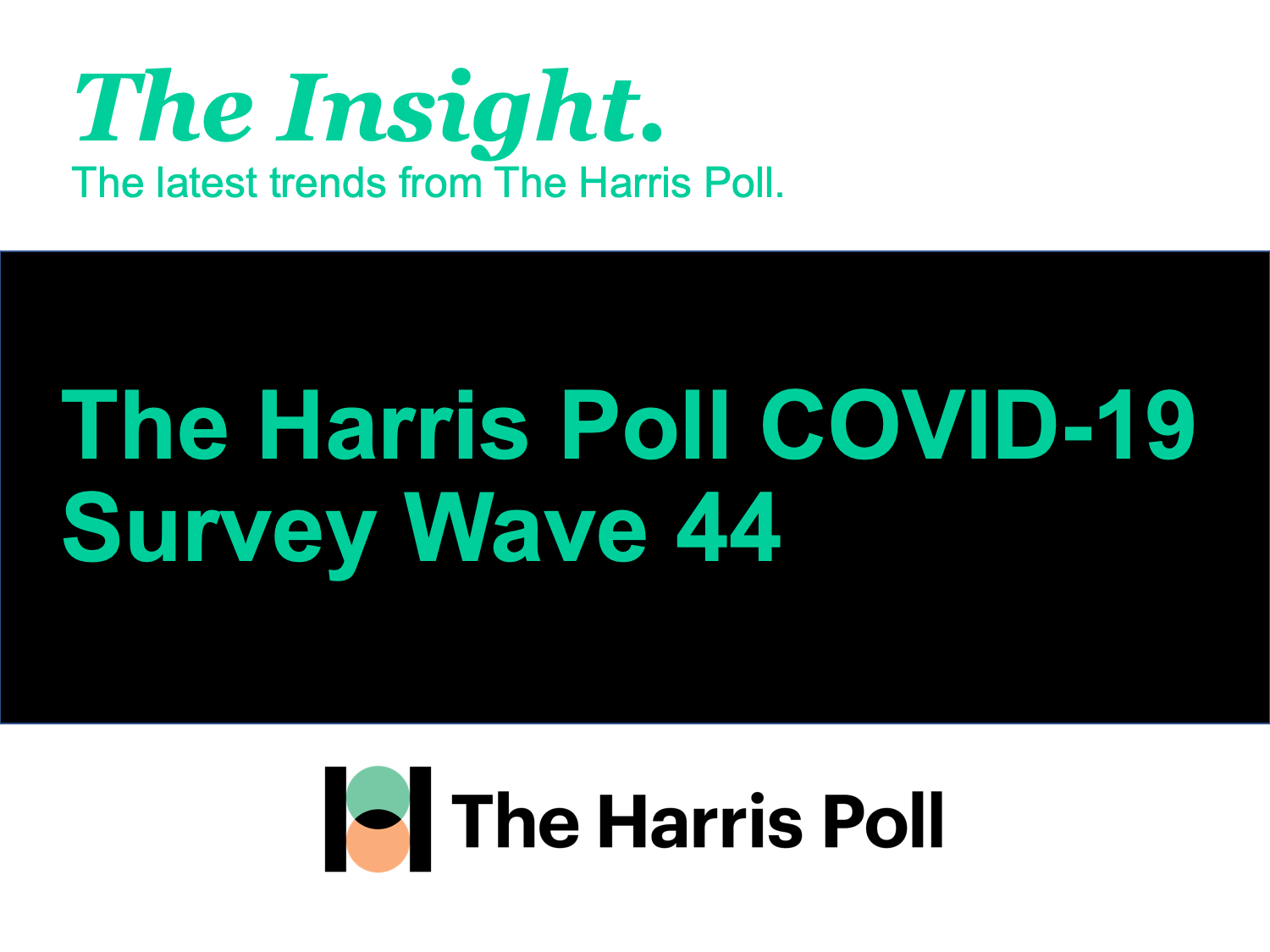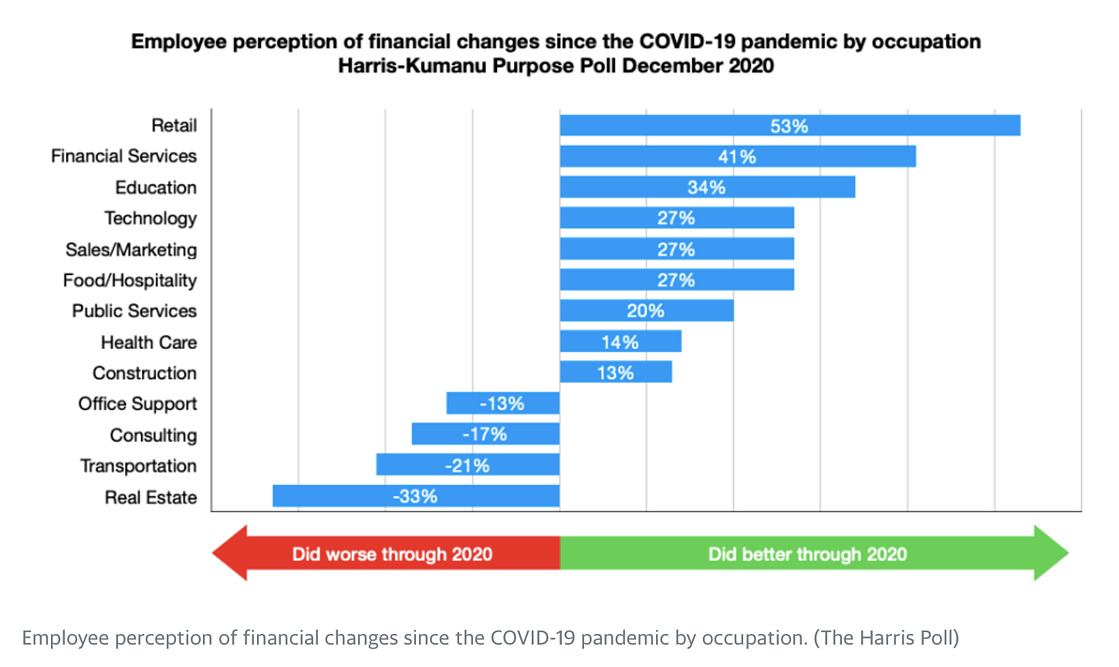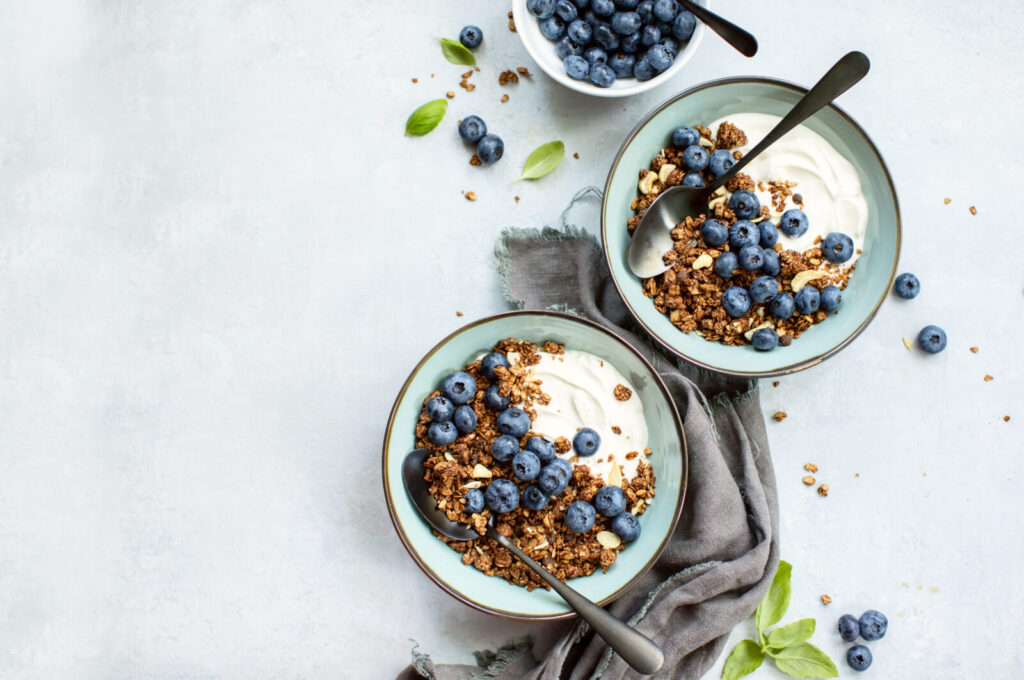Brief • 5 min Read

In The Harris Poll COVID-19 Tracker (Week 44) fielded December 21 to 23, 2020, we check-in with Americans on COVID sentiments, look at which workers who won (and lost) in the pandemic economy, COVID trends Americans hope stay (and go away), how some Americans are replacing alcohol with cannabis to escape the pandemic, and if news of allergic reactions to the vaccines is causing concern.
As a public service, our team has curated key insights to help leaders navigate COVID-19. Full survey results, tables, and weekly summaries can be accessed for free at The Harris Poll COVID-19 Portal. We will continue to actively field on a regular cadence to track the shifts in sentiment and behaviors as the news and guidelines evolve.
A New Year COVID Check-In
Many hope the year 2021 will bring the long-awaited “return to normal” as vaccine distribution ramps up. As we continue through the worst of it with deaths surpassing 356,000 Americans, we checked-in with how Americans are feeling about the pandemic these winter months.
- After three weeks of seeing healthcare workers receive COVID-19 vaccines, Americans are becoming more comfortable with receiving it themselves: those very likely to get the vaccine as soon as it is available increased 10-pts, from (26%) on 12/13 (the day before the first vaccines were administered in the U.S.) to (36%) this past weekend.
- However, Americans still see a long road ahead: more than three-quarters (76%) are concerned to leave their home for essential errands and (78%) are concerned about another wave, while half (49%) fear they may lose their job and (51%) fear they could die from the virus.
- Despite the vaccine and a horrific December, two-thirds (67%) of Americans say the worst is still ahead of us for COVID, unchanged from (66%) on October 24th. Seniors, especially, are concerned about the future: (85%) say the worst is ahead of us vs only (60%) of Gen Z/Millennials.
- And consumers don’t plan to resume most normal activity for half a year or more: (49%) say it will be more than 6 months before they will fly on a plane; (48%) before they go to a sporting; (43%) before they will go to a party; (40%) before they go to the movies; and (27%) before they go out to dinner.
Takeaway: We may be in the new year, but we are still in the darkest days of the pandemic with a long way to go before we recognize any semblance of normal. Americans may be growing weary of social distancing, but most still see ‘normal’ as a far-off dream.
The Workers Who Won in the Pandemic — and Those Who Lost: Yahoo Finance-Harris Poll
Last week, a new The Harris Poll survey in collaboration with Kumanu and featured in Yahoo Finance written by CEO Will Johnson reveals which workers are entering 2021 doing better or worse by four measures – financially, mentally, physically and existentially – by 13 job sectors. What did we learn?
- Reporting better overall health were workers in construction, education, financial services, retail, sales and marketing, and tech. The biggest gains in physical health were in construction — (58%) feeling better and (10%) feeling worse — while the biggest improvements in mental health were in sales and marketing, with (56%) reporting feeling better and (13%) feeling worse. Those in tech stand out, too, with (51%) ending up physically and (54%) mentally.
- Those saying they’re entering 2021 in sharply worse health are in health care, consulting, office support and real estate. Four in 10 in consulting and real estate say their physical health has declined, and over (70%) in real estate say they’re in poorer shape mentally.
- Feeling less purpose at work, on the other hand, are employees in construction, consulting, food and hospitality, office support, public services, real estate, retail, and transportation. Fully a third in real estate and (21%) in consulting say they’re getting less from their jobs than they did before the corona crisis.

Takeaway: The new year probably will be different for many Americans as vaccines enable people to return to work and social behaviors they’ve had to shun. We can’t say when the pandemic will end. But there’s one thing we can confidently predict about this new normal: We won’t all share its benefits equally.‘
Most People Would Be Happy to Never Shake Your Hand Again: Fast Company-Harris Poll
Despite a yearning for the normalcy of pre-pandemic times, there were some changes wrought by the coronavirus era that Americans would like to preserve. In a survey conducted exclusively for Fast Company, The Harris Poll asked which COVID trends Americans hope will continue after the pandemic subsides. What did we find?
- Wave goodbye to handshakes: (30%) of respondents said they’d like to shake hands with other people less often than before the pandemic, and (26%) said they wouldn’t want to do it at all. Overall, (54%) agreed with the statement, “I would be happy to never shake someone’s hand again.”
- Business travelers want to stay grounded: A total (40%) of respondents said they want to resume business travel less often, or never again after the pandemic. Overall, (51%) said they would probably travel only “a few times a year” for business.
- People want to go back to the office, just not all the time: two-thirds (66%) agreed that they would prefer “a mix of in-office and remote work” after the pandemic.
- Zoom won’t lose too much steam: (20%) said they would like to attend more video get-togethers with family and friends even after the pandemic, and (26%) said they’d keep doing them in the same amount
Takeaway: The pandemic will accelerate many trends that were slow-moving but inevitable, such as a virtual meetings and e-commerce, while also bringing about many we wouldn’t have anticipated just a year ago – such as the handshake.
Marijuana Is Replacing Alcohol for Nearly Half of Cannabis Consumers
Last month, a new survey conducted by The Harris Poll on behalf of Curaleaf and featured in Forbes looked into how consumers are turning to cannabis during the pandemic as a way to escape the stress – often at alcohol’s expense.
- Almost half of cannabis consumers age 21 and up have replaced or reduced their alcohol consumption with marijuana since the beginning of the coronavirus pandemic, and one-third of those who use cannabis recreationally prefer cannabis to drinking alcohol.
- Four in 10 (42%) cannabis consumers said that they had either started or increased their consumption during the pandemic, while (45%) said they had replaced or reduced alcohol use with cannabis.
- Among those who said they had increased their cannabis consumption since the start of the pandemic, (54%) said that they did so to reduce stress and anxiety, (50%) to help them relax, and (48%) said they did so to help them sleep.
- Of those who said they use marijuana recreationally, a third (33%) said that they prefer cannabis over alcohol.
Takeaway: “Since the start of the pandemic, we have seen an increase in new consumers at our dispensaries […] and the increasing diversity among consumers who enjoy it will continue as the general public become more interested in incorporating cannabis in their health and wellness routines,” said Joe Bayern, president of Curaleaf.
Americans Aren’t (Too) Concerned Over Vaccine Allergic Reactions
As more and more Americans receive a COVID-19 vaccine, some will experience an allergic reaction. Are Americans concerned that news of recipients having an adverse reaction makes the vaccine too big of a risk?
- Unknown side-effects are one of the reasons Americans remain skeptical of receiving a COVID-19 vaccine: more than three-quarters (78%) of Americans are concerned about potential side effects of a COVID-19 vaccine. Just under half (42%) have heard about people who have received a COVID-19 having an allergic reaction.
- Americans are evenly divided over whether hearing about allergic reactions has an impact on their likelihood to get the vaccine: (50%) say they are less likely to get it, while (50%) say it doesn’t have an impac
- Age – and likey how threatening COVID itself can be – plays an important role when deciding to take the vaccine: while only (29%) of Seniors say news of allergic reactions makes them less likely to receive a vaccine, (38%) of Boomers say they are less likely, (59%) of Gen X and (68%) of Gen Z/Millennials.
- Fuel for Vaccine Skeptics: One-third (32%) of the public say its cause for concern, while (49%) say it is a normal part of receiving a vaccine. Nearly half (47%) of those not likely to get the vaccine say its cause for concern (vs only 23% of those who are likely to get the vaccine).
Takeaway: STAT News reports how last month the CDC said “people who have experienced severe reactions to prior vaccines or injectable drugs can still get the Pfizer/BioNTech vaccine for COVID-19, but should discuss the risks with their doctors and be monitored for 30 minutes afterward.”
Subscribe for more Insights
Subscribe to our newsletter for the latest trends in business, politics, culture, and more.
Download the Data
This survey was conducted online within the U.S. by The Harris Poll from December 21 to 23, 2020 among a nationally representative sample of 1,976 US. adults.
Download
Subscribe for more Insights
Subscribe to our newsletter for the latest trends in business, politics, culture, and more.
Download the Data
This survey was conducted online within the U.S. by The Harris Poll from December 21 to 23, 2020 among a nationally representative sample of 1,976 US. adults.
DownloadRelated Content







